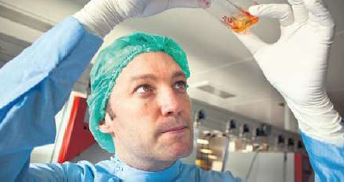Working in the field of assisted reproductive technology is exciting. It is common to see news clips of the latest innovation in IVF or a breakthrough in technology that will increase our IVF success rates. It is exciting to embrace these changes, master the new techniques, implement them into practice, and actually see the results in patient’s lives. In just the past few years, Coastal Fertility has kept pace with these advances by completely updating our lab to be state-of-the-art, implementing a comprehensive genetic embryo testing program as well as being one of the best egg freezing centers in the nation.
However, a behind the scenes look at what really makes an embryology laboratory successful is not going to make the nightly news. Despite capturing the interest of embryologists around the world, discussing aspects of a successful embryology lab is decidedly not exciting to the general population.
Only to fellow embryologists can I boast about our newly installed, high-tech HVAC system with 4 ultra-filters, UV lights and lab positive pressure. Nerdy bragging about how low I got my volatile organic compound levels (VOCs) doesn’t seem to keep my wife’s attention at dinner. I lose her even before I can cite the scientific papers showing how improved air quality is a key factor in improving IVF success.
Quality Control, a big part of our successful fertility program, is also not likely to become a favorite cocktail party conversation. Essentially, it is our responsibility to provide the best possible environment for the gametes and embryos that spend time in our laboratory. As such, everything involved in making an embryo happy – the equipment, the plasticware, the culture media, even the incubator gas, is tracked, tested and monitored before ever encountering an embryo. Maintaining the optimal temperature of the embryos as they are cultured, observed, and manipulated, requires over 30 temperature points to be monitored each day. Each piece of equipment is monitored daily with scheduled maintenance, calibration, and certification protocols in place, giving embryologists piece of mind that the embryos are in their optimal environment. Additional piece of mind is had by knowing the incubators and other essential lab equipment have battery back-up, an emergency generator in place, and an alarm notification system via telephone. Perhaps seeing an embryologist racing into work at 3am to check a false alarm could be an entertaining news clip? Embryologists are not immune to the scrutiny and monitoring. Embryologists must take part in regular internal and external proficiency testing. These assessments keep our skills and knowledge up to date with other centers and ensures uniform performance among embryologists in a laboratory. We are proud to go to such great lengths for our patients and their future babies.
Related Posts

August 04, 2017
Are All Labs Created Equal?

March 19, 2020
Why Your Fertility is Safe in Our Hands

December 13, 2016
Fertility Drugs and Cancer: Is There a Link?

November 21, 2019
How to Keep Your Fertility Treatments on Track When Traveling for the Holidays

January 09, 2020
The Four Biggest Reasons Not to Delay Fertility Treatments



